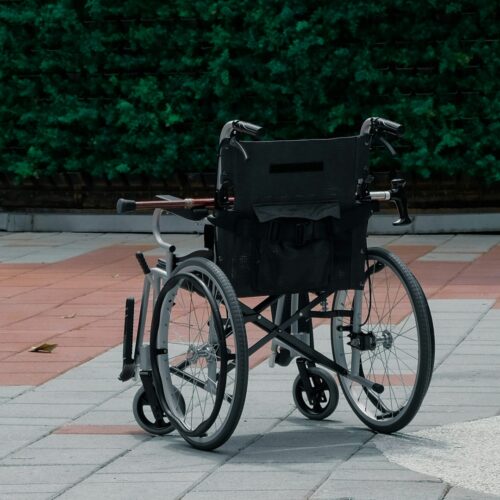After your spinal cord injury (SCI), you might feel as though your whole world has been turned upside down, with a million and one things to worry about. Including your heart health.
So, can spinal cord injury cause heart problems? In this article, we investigate the connection between SCIs and heart health, whether there’s an increased risk, and how individuals can adapt their lifestyles to prevent any complications.
We’ll also share how Aspire Law’s expert team is here to support you throughout your journey with SCI, with legal advice, housing needs, and so much more.
Spinal cord injuries and heart health
Spinal cord injuries (SCI) are a result of damage to the spinal cord, often leading to loss of motor function and your sensations. Depending on the injury’s location and severity, individuals may also experience partial or complete paralysis.
It’s important to understand that SCIs have a profound effect on other body systems, especially cardiovascular health.
Can spinal cord injury cause heart problems?
Yes, unfortunately, SCIs can lead to problems with your heart health.
SCIs can alter the connections between the cardiovascular control centre in your brain and the heart and blood vessels. As a result, this can disrupt your autonomic nervous system, thus affecting your body’s ability to regulate blood pressure and heart rate and leading to potential complications.
Additionally, due to a lack of physical activity during your rehabilitation, your injury can put more pressure on your heart than usual. Therefore, individuals with SCI are at a higher risk of developing cardiovascular diseases (CVD) when compared to non-injured people.
Increased risk of cardiovascular complications
Individuals with SCI face an elevated risk of developing cardiovascular diseases, including heart disease, strokes, and peripheral arterial disease. Factors contributing to this increased risk include:
Reduced physical activity: SCI often leads to decreased mobility, contributing to obesity, diabetes, and other cardiovascular risk factors.
Autonomic dysfunction: Impaired regulation of blood pressure and heart rate increases the likelihood of CVD.
Metabolic changes: Altered metabolism can accelerate the development of heart problems.
How to adapt your lifestyle
Knowledge is power. Although these medical terms can sound frightening, it’s important to learn about the risks so that you can uncover how to manage and prevent them. This approach may require a few adaptations to your lifestyle, including the following.
Diet and nutrition
In relation to eating, it’s crucial that you’re getting enough of the major food groups, contributing to a healthier heart. Try to have a balanced diet rich in fruits, vegetables, whole grains, and lean proteins. You should also limit your intake of saturated fats, sugars, and sodium to maintain healthy levels of cholesterol and blood pressure.
And don’t forget to stay hydrated!
Physical activity
We understand it can be a struggle for people with SCI to get used to a new way of moving their bodies. However, exercising regularly will keep your heart healthy.
To manage this movement in an accessible way, try just 20 minutes of moderate intensity exercise, twice per week, as recommended by the NHS. Aerobic activities such as pushing, dancing and arm cycling are all great for people with SCI.
You can also give strength training a go, by using your body weight, resistance bands or weights to increase your strength. This will help with your rehabilitation! Start slowly with whatever you can manage, and increase gradually over time.
And, when you’re ready, why not try a sports team? This is not only great for your heart health, but also encourages connections with others in a similar situation, empowering new friendships, as well as improving overall well-being.
Regular monitoring
Additionally, you should be getting routine check-ups with a medical professional to monitor your blood pressure, cholesterol levels, and other cardiovascular indicators. Guidance from your doctor is crucial for both preventing and tackling any complications that may arise.
Stress management
We all know that stress is bad for our health, regardless of one’s condition. Especially after a challenging event such as a SCI, it’s important to look after your mental health as well. Techniques such as mindfulness, meditation, and breathing exercises can help manage stress and look after your heart at the same time.
Avoiding harmful habits
It goes without saying, but smoking and alcohol consumption can have adverse effects on your heart health. Try to quit or limit where you can to reduce cardiovascular risk.
Receive the support you need with Aspire Law
There is an increased level of risk associated with SCIs and cardiovascular disease. However, with awareness, support, and targeted care, these risks can be managed.
Through adaptive exercise, good nutrition, regular checkups, and teamwork with your care providers, you can protect your heart and live a full and independent life.
Have you or a loved one experienced a spinal cord injury? At Aspire Law, we are the leading law firm for spinal cord injury claims, with many of our lawyers ranked as leaders in the field. We help our clients regain their independence after their accident and assist them in gaining access to the very best rehabilitation, care, housing, transport, and support services.
Get in touch with a member of our specialist team to learn more about our services today.



